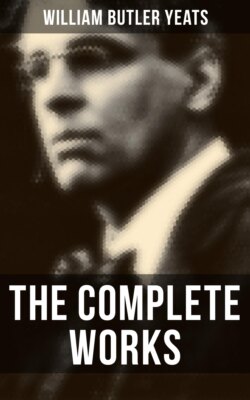Читать книгу The Complete Works - William Butler Yeats - Страница 123
На сайте Литреса книга снята с продажи.
The Secret Rose (p. 32).
ОглавлениеI find that I have unintentionally changed the old story of Conchubar’s death. He did not see the crucifixion in a vision, but was told about it. He had been struck by a ball, made of the dried brain of a dead enemy, and hurled out of a sling; and this ball had been left in his head, and his head had been mended, the ‘Book of Leinster’ says, with thread of gold because his hair was like gold. Keating, a writer of the time of Elizabeth, says, ‘In that state did he remain seven years, until the Friday on which Christ was crucified, according to some historians; and when he saw the unusual changes of the creation and the eclipse of the sun and the moon at its full, he asked of Bucrach, a Leinster Druid, who was along with him, what was it that brought that unusual change upon the planets of Heaven and Earth. “Jesus Christ, the Son of God,” said the Druid, “who is now being crucified by the Jews.” “That is a pity,” said Conchubar; “were I in his presence I would kill those who were putting him to death.” And with that he brought out his sword, and rushed at a woody grove which was convenient to him, and began to cut and fell it; and what he said was, that if he were among the Jews, that was the usage he would give them, and from the excessiveness of his fury which seized upon him, the ball started out of his head, and some of the brain came after it, and in that way he died. The wood of Lanshraigh, in Feara Rois, is the name by which that shrubby wood is called.’
I have imagined Cuchulain meeting Fand ‘walking among flaming dew.’ The story of their love is one of the most beautiful of our old tales.
I have founded the man ‘who drove the gods out of their Liss,’ or fort, upon something I have read about Caolte after the battle of Gabra, when almost all his companions were killed, driving the gods out of their Liss, either at Osraighe, now Ossory, or at Eas Ruaidh, now Asseroe, a waterfall at Ballyshannon, where Ilbreac, one of the children of the goddess Danu, had a Liss. But maybe I only read it in Mr. Standish O’Grady, who has a fine imagination, for I find no such story in Lady Gregory’s book.
I have founded ‘the proud dreaming king’ upon Fergus, the son of Roigh, the legendary poet of ‘the quest of the bull of Cuailgne,’ as he is in the ancient story of Deirdre, and in modern poems by Ferguson. He married Nessa, and Ferguson makes him tell how she took him ‘captive in a single look.’
‘I am but an empty shade,
Far from life and passion laid;
Yet does sweet remembrance thrill
All my shadowy being still.’
Presently, because of his great love, he gave up his throne to Conchubar, her son by another, and lived out his days feasting, and fighting, and hunting. His promise never to refuse a feast from a certain comrade, and the mischief that came by his promise, and the vengeance he took afterwards, are a principal theme of the poets. I have explained my changing imaginations of him in ‘Fergus and the Druid,’ and in a little song in the second act of ‘The Countess Kathleen,’ and in ‘Deirdre.’
I have founded him ‘who sold tillage, and house, and goods,’ upon something in ‘The Red Pony,’ a folk tale in Mr. Larminie’s ‘West Irish Folk Tales.’ A young man ‘saw a light before him on the high road. When he came as far, there was an open box on the road, and a light coming up out of it. He took up the box. There was a lock of hair in it. Presently he had to go to become the servant of a king for his living. There were eleven boys. When they were going out into the stable at ten o’clock, each of them took a light but he. He took no candle at all with him. Each of them went into his own stable. When he went into his stable he opened the box. He left it in a hole in the wall. The light was great. It was twice as much as in the other stables.’ The king hears of it, and makes him show him the box. The king says, ‘You must go and bring me the woman to whom the hair belongs.’ In the end, the young man, and not the king, marries the woman.
